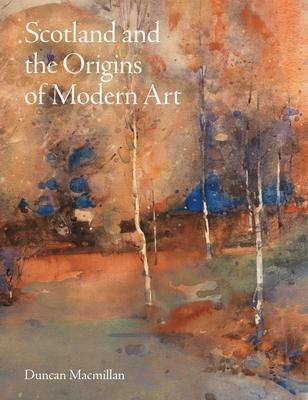Scotland and the Origins of Modern Art

Scotland and the Origins of Modern Art
A discussion of sensibility, sensation, perception and painting, Scotland and the Origins of Modern Art is an original work which argues that the eighteenth-century Scottish philosophy of moral sense played a central role in shaping ideas explored by figures such as Cézanne and Monet over one hundred years later.
Proposing that sensibility not reason was the basis of morality, the philosophy of moral sense gave birth to the idea of the supremacy of the imagination. Allied to the belief that the imagination flourished more freely in the primitive history of humanity, this idea became a potent inspiration for artists. The author also highlights Thomas Reid's method in his philosophy of common sense of using art and artists to illustrate how perception and expression are intuitive. To be truly expressive, artists should unlearn what they have learned and record their raw sensations, rather than the perceptions that derive from them. Exploring the work of key philosophical and artistic protagonists, this thought-provoking book unearths the fascinating exchanges between art, philosophy and literature during Enlightenment in Scotland that provided the blueprint for modernism.PRP: 420.00 Lei
Acesta este Prețul Recomandat de Producător. Prețul de vânzare al produsului este afișat mai jos.
336.00Lei
336.00Lei
420.00 LeiLivrare in 2-4 saptamani
Descrierea produsului
A discussion of sensibility, sensation, perception and painting, Scotland and the Origins of Modern Art is an original work which argues that the eighteenth-century Scottish philosophy of moral sense played a central role in shaping ideas explored by figures such as Cézanne and Monet over one hundred years later.
Proposing that sensibility not reason was the basis of morality, the philosophy of moral sense gave birth to the idea of the supremacy of the imagination. Allied to the belief that the imagination flourished more freely in the primitive history of humanity, this idea became a potent inspiration for artists. The author also highlights Thomas Reid's method in his philosophy of common sense of using art and artists to illustrate how perception and expression are intuitive. To be truly expressive, artists should unlearn what they have learned and record their raw sensations, rather than the perceptions that derive from them. Exploring the work of key philosophical and artistic protagonists, this thought-provoking book unearths the fascinating exchanges between art, philosophy and literature during Enlightenment in Scotland that provided the blueprint for modernism.Detaliile produsului









